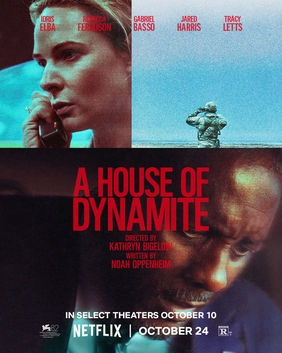Vengeance - Beware The Meandering Tone
- andy8534
- Apr 7, 2023
- 4 min read
At its heart, Vengeance is a mystery. Ben, the main character, is a jaded New Yorker, someone who despite being a writer for New Yorker magazine, doesn’t feel he has a voice. When he receives a call about the death of his former fling Abby, he reluctantly agrees to fly to Texas for her funeral. Texas might as well be Afghanistan as Ben fakes his way around at first and then decides to stay and create a podcast around the somewhat circumspect death of Abilene, whom the family believes was murdered. This sets off the story as it gives Ben the material for his podcast.
He interviews people and gets into typical fish-out-of-water trouble with the locals, whom he presumed were stereotypical country bumpkins. To his surprise, there’s more depth to Abby’s family than Ben’s preconceived mind believes.
He learns about them, their way of life, and Abby, for whom he grows a newfound fondness. He likes the persona more than he did the real person because he never much paid attention to the real person. The true discovery of this “light” investigative journalism, however, seems to be Ben discovering truths about himself. He did, after all, decide to milk someone’s death for a podcast, and he does end up opening his mind to the fact that these country Texans are humans with feelings, experiences, and wisdom. Different than his, but still. He seems to evolve. And so does the excitement for his podcast story as the editor manages to get him on some major show…this will be his breakthrough…he will finally assert his voice onto the collective consciousness of the country, In Cold Blood-like. Ben couldn’t be happier.
Then his rented Prius explodes, and he is genuinely touched by Abby’s entire family gathering for support at the hospital. They are not the cool detached people he’s known from the big city…they are family. All seems well until the grandmother blurts out that despite everyone’s denial, Abby indeed was a pill popper, and her death probably was an accidental overdose. This knowledge makes Ben revert to his “normal” self and he goes off on the family, their way of life, and their –according to him—self-created misery.
“When everything means everything, nothing starts meaning anything anymore,” portends the philosophizing music producer. This film has many things to say about the state of the Union. Ben represents the detached coastal elite in the form of a cynical self-serving guy who is surprised that all the stereotypes he thinks he’ll encounter in Texas are not true. Only some.
Abby’s family, are “stereotypical” Texans who have also read some books and listened to some podcasts. Buy who are they, truly? They start off as simpletons who fall for Ben’s empty eulogy, then the mother tells us the two daughters want to be famous, and then one recites Chekov. But we don’t get to know them and therefore feel for them. The contrast to their knowledge is Ben revealing that he in fact is an empty coastal who can quote Chekov but, unlike them, has never read any of his plays.
Despite sputtering knowledge and facts, however, that’s the extent of their character depth. The only character that is delved into a bit deeper is the kid brother, Mason, whom they “lovingly” call El Stupido.
Ben’s character growth seems to stem from the fact that he’s learning that people from flyover states can and do have more to offer than the superficial portrayal they receive and that their limited environment is what forces them into conspiracy theories and drug abuse. Ben’s gradual appreciation for the locals and especially Abby’s family solidifies when they all wait for him at the hospital after his car was blown up.
However, despite all this growth, when the grandmother character reveals that Abby was an addict, he retreats to his old self… loses it, berates the entire family, and tells them all to go “bless their hearts!” Wink, wink. He’s right back to the previously held views. The growth was only temporary.
The story, however, is not finished, as Abby’s phone leads Ben to the real culprit of Abby’s death…the local music producer, who turns out to be a pill-pusher. He is unapologetic about Abby’s overdose and the fact that he simply let her die, justifying it with a blasé attitude. And for this Ben shoots him, setting things right with the family and the world. Supposedly.
Vengeance starts out as a satire, then turns into an almost cozy mystery, with some physical comedy and heart and finally goes dark when Ben shoots the music producer. This feels out of character, both for Ben and the story. Ben was not set on vengeance, and thus his action comes out of left field. His path toward the killing was not set up and doesn’t feel like a satisfying conclusion. Alternatively, the better character to shoot the producer would have been Abby’s older brother who wanted to avenge the murder from the beginning and is, in fact, a gun guy. Ben’s uneven character path causes a tone shift that feels uneven.
Written and directed by B. J. Novak




